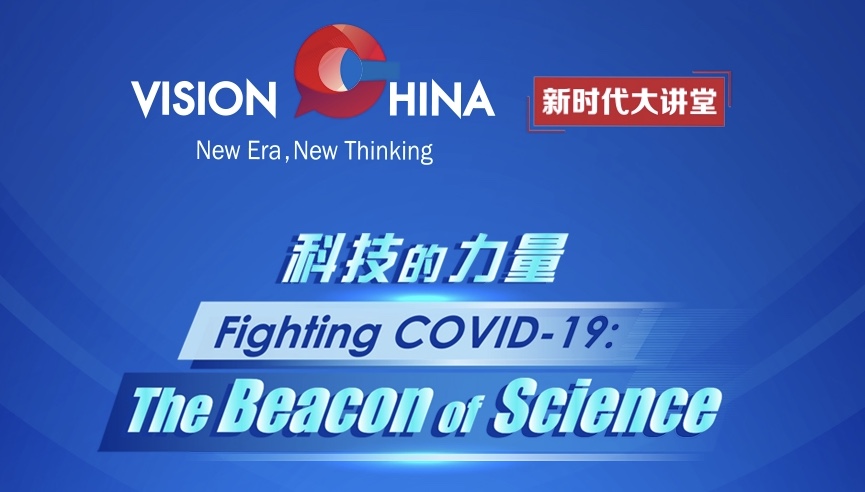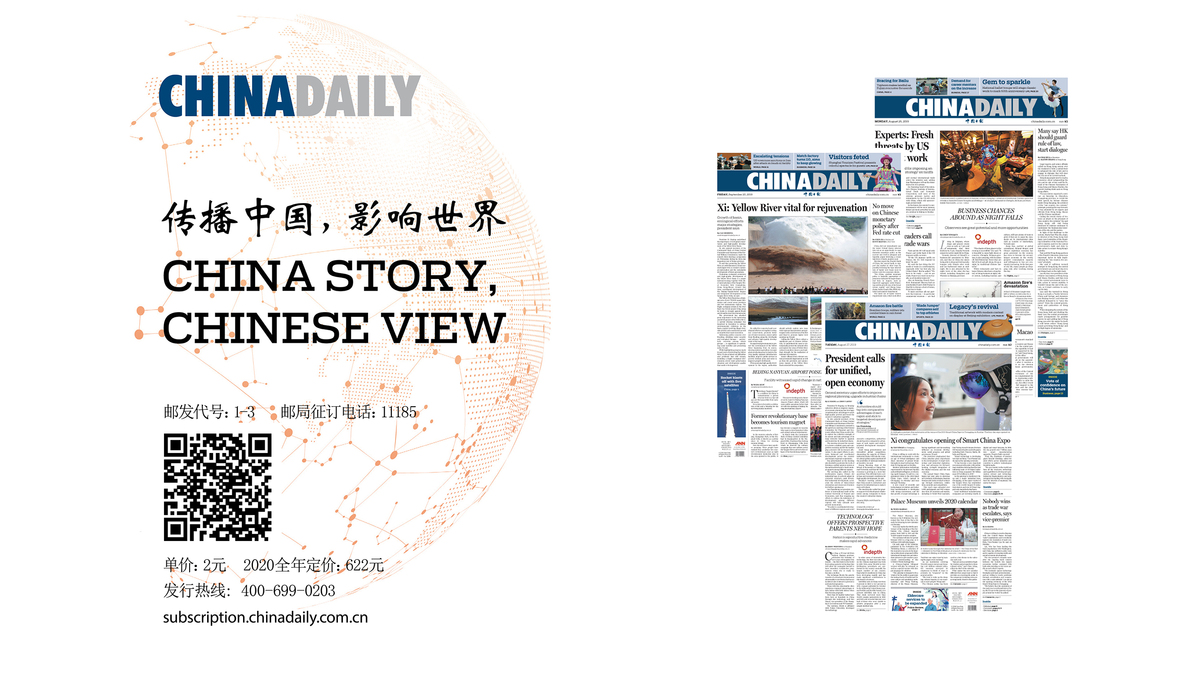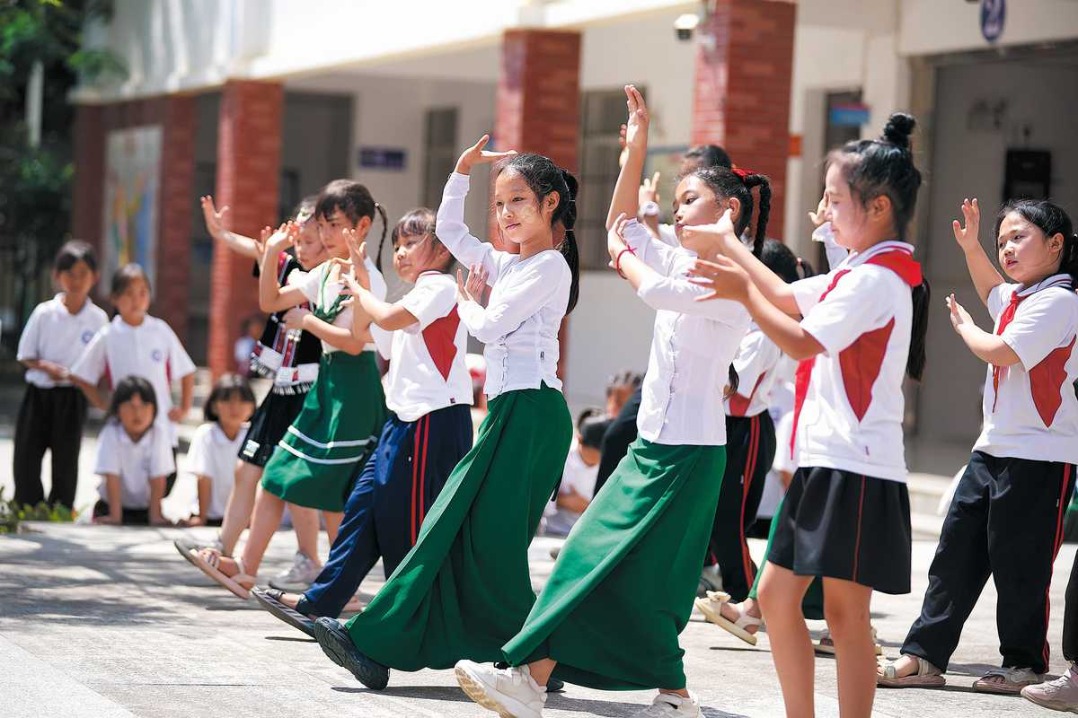Vision China event highlights key role of science in fighting outbreak


It is science and innovation, not politics, that plays the vital role in containing the COVID-19 pandemic — a global challenge that requires global solutions, speakers at the latest edition of Vision China said.
Themed "Fighting COVID-19: The Beacon of Science", the event, organized by China Daily, was broadcast on multiple media platforms on Sunday to a global audience. Four prominent speakers shared their personal accounts of how China and the international community have been battling the pandemic together, and they offered insights on how to strengthen the role of science in tackling public health emergencies.
Shamila Nair-Bedouelle, assistant director-general for natural sciences at the United Nations Educational, Scientific and Cultural Organization, said that "the COVID-19 pandemic has demonstrated a unique and productive international solidarity among scientists across the world".
"They are exchanging scientific and technological data, and information beyond borders," she said, adding that Chinese scientists published the "extremely important" genetic sequence of the novel coronavirus very early, which enabled other countries to develop screening tests.
"(The sharing) promoted open science and scientific collaboration across the world," she said. "We need to boost scientific input in decision-making and preparedness," she said, thus allowing "science as a beacon to inform governance".
Nair-Bedouelle said UNESCO warmly welcomes the open science COVID-19 platform set up by Chinese scientists. "The initiative is really in the spirit of making science more accessible, more connected to societal needs, and promoting equal opportunities for people and scientists across the world."
Wu Zunyou, chief epidemiologist at the Chinese Center for Disease Control and Prevention, said that China has promptly published information related to the COVID-19 outbreak, and shared its practice with rest of the world.
He said China was the first to report the outbreak to the WHO, the first to share the genetic sequence of the virus, and the first to mobilize international collaboration against the disease. Moreover, China has taken swift and drastic measures that effectively stemmed the spread of the virus.
As an expert who also participated in containing the SARS outbreak in 2003, Wu said improved scientific and technological development in China in recent years had greatly contributed to the quick response to COVID-19, making possible the quick identification of the new virus and the development of testing kits for diagnosis. "We have seen a big progress in this aspect compared with the SARS outbreak 17 years ago," he said.
Wu said controlling the COVID-19 outbreak is not a task for one country, but a global endeavor. "All countries need to collaborate to finally win the battle against COVID-19," he said.

Denis Depoux, global managing director of consulting firm Roland Berger, said that technology and innovation have been paramount in the fight against the crisis, "because they provide a slate of solutions".
"Innovation helped overcome the constraints, bridge gaps, and generate new growth opportunities," he said.
"This type of situation is exactly where the Chinese innovation magic plays best. China is the cradle of design thinking, or inventing practical solutions to problems, through super-pragmatic innovation," Depoux added.
Such innovations are not only manifested in key areas like protective equipment, symptom tracking, online education and health consultation, but also flourish in small, "connect the dots" applications that make lives easier in times of crisis, he said.
On the high-tech front, artificial intelligence companies have developed solutions to check if people are wearing masks, help register and track individuals in transit, and identify possible cases, he said.
Depoux said the COVID-19 pandemic has also accelerated the digitization and modernization of companies, schools and the government. This trend will create or accelerate new sources of revenues as companies and individuals are more daring and willing to adopt new solutions during these changing times.
Sunney Xie, director of the Beijing Advanced Innovation Center for Genomics at Peking University, recalled his personal story of working at Harvard University, which demonstrates the importance of Sino-US cooperation.
"Sino-US collaboration is mutually beneficial, contrary to what Americans are led to believe that China is the sole beneficiary," he said.
When he was teaching at Harvard University, he worked together with Chinese scientists and created a new way to safely screen embryos for genetic disorders. Since 2014. the method has been adopted in the US, China and the rest of the world.
Since the COVID-19 pandemic emerged, Xie said he has witnessed all kinds of global response, including medical aid, voluntary work, generous donations, collaborative research and internet seminars.
"The virus knows no borders, and the same goes for our fight against it," he said.
Xie said his latest goal is to find the neutralizing antibodies from COVID-19 survivors and inject them into patients as a substitute for plasma therapy, which has shown efficacy against the disease but is also difficult to scale up due to limited supply.
"Being scientists, we all believe that it is science, not politics, that will save mankind from the disaster of COVID-19 and other disasters yet to come," he said. "Diseases have no borders, neither does research, nor should humanity."
Launched in 2018 by China Daily, Vision China invites renowned political, business and academic speakers to tell China's story from global perspectives and discuss major China-related topics of international interest. It aims to become a broad platform to make China's voice better heard in the world, as well as to build a new channel to respond to global concerns on major China-related issues.
Sunday's event, supported by Huawei Technologies, Wuhan No 1 Hospital and Yiling Pharmaceutical, was the 12th Vision China event. It was also the third Vision China event related to the fight against COVID-19, after one with the theme "Fighting COVID-19: We are all Together" on March 31 and "Young Voices: Shared Future & Better Tomorrow" on April 16.
If you want to subscribe to the China Daily newspaper, the following information can help you.

































